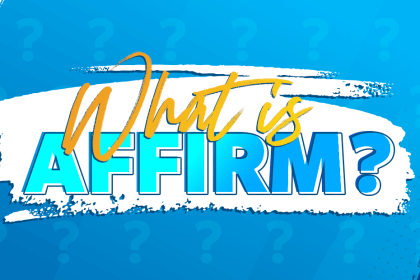Do you feel a sense of fulfillment in your career, relationships, and life in general, or do you feel so-so? Sometimes, life can become confusing if you haven’t answered the question, “What’s your why?”. So if you are reading this, it’s time to find your why to bring more intention and focus to your life.

Finding our why is a journey of self-discovery. It focuses on uncovering the underlying purpose that drives us to take action. By being honest with ourselves, we can uncover our true motivations and clarify what makes our lives meaningful.
It seems that the vast majority of people are simply walking through their daily routines, jobs, and lives without a greater sense of purpose. But it is possible to find the why behind our activities and goals!
This article will cover what it means to find your why and provide an actionable step-by-step guide you can use today.
But first, let’s break down what having a “why” really means.
What is a “why”?
Think of a why as your personal mission statement to help you create a bright future. It is the driving force that helps us discover purpose and make better decisions.
It’s less vague than having gut feelings and more in tune with our direction in life.
A why is the framework we use to make decisions in every area of our lives, and so having one could be on our list of important concerns. It keeps us going when we’re tired and ready to quit, and it’s the essence of how we want our lives to feel.
Simon Sinek, the author of multiple best-selling books, including the self-help book, Start With Why, defines having a why “your purpose, your cause, what you believe in”.
It may look like a single word, such as “integrity,” “service,” or “create.” Or, it may be a more expansive phrase such as “spread joy and laughter to everyone I meet” or “equitable access to health and fitness resources.”
Most importantly, it encompasses your vision of the world and helps you achieve long term life satisfaction. It can also help you create elements of change in your life.
Why is it important to know how to find your why?
When we know our why, whatever that may be, we can create a life that fulfills us day in and day out.
I know this sounds lofty and maybe unnecessary. After all, you’re not a business; you’re simply trying to find a more enjoyable approach to life.
However, I’ve personally realized that if you find out what’s most important to you, you’ll identify (and free yourself from) obligations that don’t align with your personal core values and goals.
As a result, it may become easier to form new habits, launch creative ventures, save money, form long-lasting relationships, etc. You’ll find it simpler to create long-term success with your professional life, relationships, behavior, and mindset.
Ultimately, when your why becomes innate to your every action, it is easier to contribute to your community and help others flourish in their own whys. Finding your purpose and knowing what aligns with your goals and values is a privilege.
8 Action steps to get clear on your why
“Finding your why” may seem impossible, like trying to answer, “Which came first, the chicken or the egg?” But you already have all the answers you need.
You just need to take some time to put your ideas and goals in order with some detailed exercises. It might take more than one draft and some actual work, but you will eventually develop something that makes sense.
These 8 steps will help you do just that.
Tip: Be kind and patient with yourself through this process, and listen. Think of it like you’re dating yourself. The nicer a date is to you, the more likely you’ll be honest and share your story.
1. Interview yourself
The first stage of the process is to interview yourself. Start by asking yourself “why” every time you make a decision, an unexpected feeling comes up, or you want to buy something. You’ll start to notice a trend.
See if you can distill the answers down into core values, which will often point you toward your purpose or, at a minimum, highlight what’s most important to you.
For example, my core money values are aesthetics, health and well-being, and education.
Knowing these, I can better manage and simplify my finances by asking “why” with every purchase or social event I consider. And if it doesn’t align with one of those three ideals, I don’t buy into it.
The result? I’m creating a life filled with items and experiences that fill me up, rather than a life filled with “stuff.”
2. Reflect on your current and past jobs
If you hope to get clear on an aligned career path, start reviewing where you are today.
For example, ask yourself:
- What do I like about this job, and what don’t I like?
- What skills do I use in my day-to-day work?
- What are my defining moments or standout memories with this job?
- What was my first job? Did I enjoy it?
- Do I thrive in jobs that are more practical and hands-on, or do I prefer an office setting?
- Do I want to be in a leadership position or am I in one already?
- What would make me feel most fulfilled if I only had a single morning a week to get work done?
- What are my hidden talents that I’ve discovered from this job?
In addition to finding purpose in your career, you may be able to use these skills to help with areas of your life where you experience dissatisfaction.
Additionally, perhaps your why is to use the skills you learned in your current (and prior) positions to help others address the same problems as you have.
3. Ask your friends and family
This activity to help you find your why requires you to ask questions of your friends and family, or even a colleague, not just yourself. Someone close to you might teach you the most important lesson about what inspires you.
So ask the five people whose opinions you respect the most what activities make you light up.
For instance, what conversations cause you to go on and on like a Shakespearean monologue?
You may be surprised by the answers you receive. Often, we’re so caught up in our heads, worrying what others will think, that we aren’t aware of what we think, what we genuinely enjoy, and what we’re experts in.
4. Reflect on your interests as a kid
Your hobbies and interests as a kid are wonderful indicators of your why as an adult. They show you what you were innately drawn to before societal expectations and standards steered you in a different direction.
So if you can, ask your parents or other caretakers what you were most absorbed in as a kid.
Maybe you were obsessed with dinosaurs but ultimately didn’t get a degree in archeology because someone suggested it’s not a lucrative career path. Or you wanted to be an astronaut but were told not to pursue your dream because it was unreasonable.
What could you do today to follow those same passions?
For example, could you write a book? Film a documentary? Work at a museum?
Understanding what is interesting to you can help you find your why.
5. Find inspiration
One of the best ways to find your why is to peruse various topics across various mediums. And see what sparks your interest.
During the why discovery process, you might take online classes, listen to a podcast, and examine life through a new lens to determine what matters to you.
For instance, what topics do you keep going back to? What do you share the most with others?
These will hint at the answer to the “what’s your why” question.
6. Consider your goals in life
What do you plan or hope to do with your life, and how will you get there?
For instance, do you want to be the CEO of your own company, start volunteering for a cause you care about, buy land, and live on a farm?
Consider where you see yourself in the next several years and the steps you must take to get there. Doing so can help you discover your purpose and the things you need to work on each day.
Think about financial goals, professional goals, and goals for fitness, family, and more.
7. Note what words resonate with you
Try reading a set of words or action phrases to see what inspires you the most.
For instance, see if any of the following sounds like something you value or is related to a way that you’d like to live: loyalty, curiosity, creativity, health, mental wellness, security, strength, learning, experience, joy, peace, kindness.
You might find several words that you feel truly represent your why. If so, remember them to help you determine your goals and find your purpose.
8. Write it down
You’re almost to the finish line! By now, you may have a pretty good idea of what your why is. To be sure you don’t forget your ideas, start writing down words, phrases, or whole pages about your why.
Your written thoughts can create an organized space for your ideas. By writing and rewriting all your thoughts, you can come up with your purpose. Think a paragraph, sentence, or word that best describes your why.
For me, I’ve found journaling to be incredibly effective in laying out my why.
Expert tip: Change your environment
If you’re having trouble discovering how to find your why, try going to a new place or a new environment. It might be a coffee shop or an outdoor space.
Sometimes I find that it’s easier to see things clearly when I get out of my day to day routine. It allows me to look at things in a different light.
It may be the same for you. While it’s a very simple exercise that doesn’t take much time or effort, it may invite change and clarity.
You found your why. Now what?
Now that you’ve identified your “why,” it’s time to create an action plan to keep yourself accountable as you work towards realizing your goals.
Create daily intentions
To build your intentions plan, list easy ways to incorporate your why into everyday life and own who you are.
For example, if your why is “service,” maybe you make sure to hold the door open for at least one person every day, help your mom, roommates, or spouse with the dishes without being asked, or simply ask a co-worker, “how can I help?”
Now, remember these intentions by writing them down daily during your morning routine.
Additionally, put it on a Post-it note and stick the note to your bathroom mirror. Make it your phone’s home screen. Or add it to your desktop or laptop.
Schedule monthly check-ups
Getting caught up in the daily grind and forgetting what we are working towards is easy.
So, set aside time each month for a self-reflection session. Take some time to think about your answers and also write them down.
Writing will help you see patterns and areas you need to focus on. Reviewing your previous self-reflection sessions to see how far you’ve come can also be useful.
Journal through the following prompts:
- What did I learn about myself this month?
- Did I act in alignment with my purpose? How?
- What can I work on in the upcoming month to get back to or stay on the right track?
- What do I need to detox or delegate?
You can also check out our more in-depth list of journal prompts for self discovery to expand on this exercise.
Plan annual reviews
Return to this exercise every year, as your “why” may change as you grow and find your purpose. What motivated you five years ago might not be what motivates you today. And that’s OK!
But if your “why” answer changes without you realizing it, you may find that your commitment dwindles. To stay focused, it’s important to take a beat and re-interview yourself every year.
For instance, ask yourself:
- What did I accomplish over the past year? Were there any significant moments of the past year? (This will help you to see how far you have come and how your why has enabled you to succeed.)
- Did these accomplishments feel joyful and exciting, or did I become neutral as time passed? (If the joy ebbed, your why may have shifted.)
- What would I like to achieve in the coming year? Do these goals align with my purpose, or are they arising from my ego?
- How does my purpose fit into the bigger picture? Is it still serving me well?
Get accountability
You’ve decided to find your purpose and learned how to set intentions. So, how do you ensure that your actions align with your why?
An accountability partner like a trusted friend or relative can be very useful. Share your why with this person, and explain your goals and ideas. Then, ask them to keep you accountable.
Accountability can be achieved by regularly chatting about your goals, asking about progress, or simply meeting for coffee with someone to see if your why is still the same and what motivates you.
How do I know what my purpose is?
You can learn what your purpose is by sitting with yourself, reflecting on your skills and interests, and thinking about what kind of energy you want to bring to the world. It may take a bit of time, but you can find your why by thinking about words that resonate with you, how you chose a career, your hobbies, and your mindset.
You aren’t alone if you are still struggling to discover your why. Focus on what matters most to you, and you will eventually find the answers.
Try asking yourself questions about how you see yourself. Are you an unshakable optimist or a visionary thinker? What is most important to you in life?
If you keep asking, the answers will become clear.
What is an example of “find your why”?
An example of “find your why” might go like this: Someone who loves fitness and health may discover their why and phrase it in the following way. “Bring awareness to health and fitness, maintain a high standard of wellness, and help others to feel their very best.”
Alternatively, here’s another example from someone who values attitude and service: “Create an atmosphere of peace and reassurance for myself and others each day.”
There are as many varieties of a why as human beings on the planet! The goal is to find your own why that makes sense for your life.
Is it okay to change my mind about my why?
Yes, it is perfectly fine (and likely) to change your mind about your why! Over the years, you may have various interests and careers, and you will be at different places in your life.
Since all of this contributes so much to your why, it is only natural that it will shift or change over time. The key is to continue to grow and to stay inspired.
Articles related to finding your why
If you found your why, you might be interested in other similar articles. Check out these next!
Find your why to enjoy a more fulfilling life!
I hope this practical guide to finding your why helps you. The bottom line is to filter through your specific stories, beliefs, and lessons to start discovering purpose behind your daily actions and choices. Doing so can help you achieve your goals and dreams, and better understand yourself.
But if you need an extra sprinkle of inspiration, here’s my personal why: “To help women cultivate a path to financial freedom, which enables them to leave behind jobs or careers that no longer serve them, and to find a livelihood that lights their soul on fire.“
And for more inspiration, check out our content on how to clearly define your priorities in life, or take an online course or two. Finally, remember to practice intentional living so you can achieve your goals!
Read the full article here

















